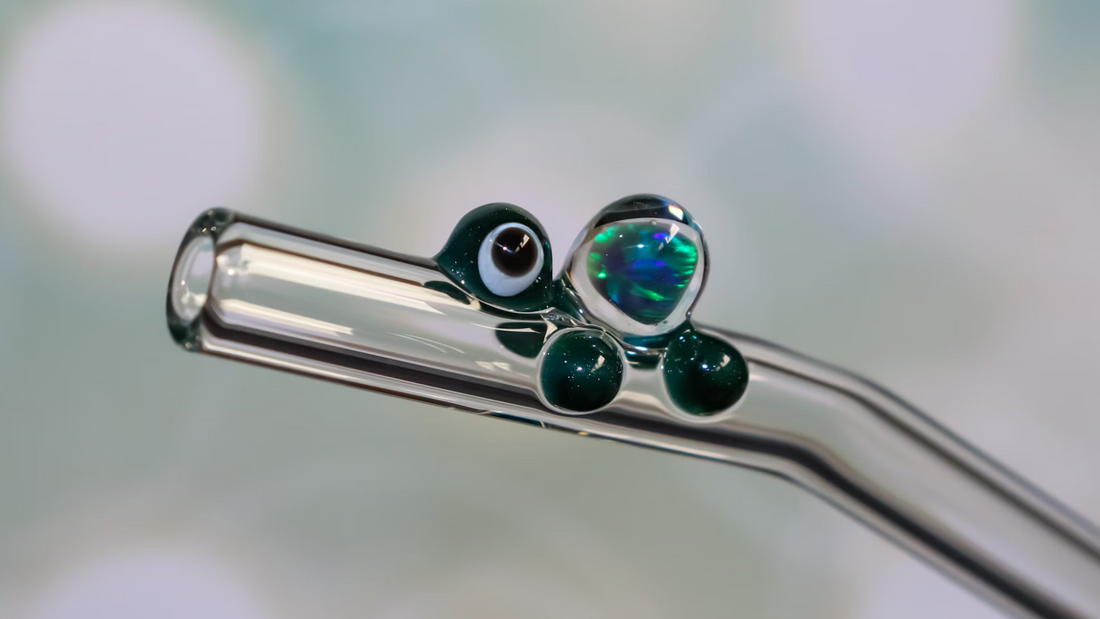Glass straws, a popular reusable alternative to plastic straws, have raised concerns about their safety and potential health risks. This article delves into these commonly asked questions to provide clarity on the subject.
Do Glass Straws Break Easy?
Glass straws, while not indestructible, are more durable than many perceive. Their resilience is influenced by several factors:
- Material: Borosilicate glass, the most common type used for straws, is relatively sturdy and heat-resistant. However, it can still break under strong impacts. Ordinary glass straws are more susceptible to breakage and should not be used for hot beverages.
- Thickness: Thicker straws can withstand impacts better than thinner ones, which are more fragile but lighter and more portable.
- Design: Straight straws generally have a lower risk of breakage compared to curved ones.
To ensure the longevity of glass straws, proper storage and handling are crucial.
Are Glass Straws Safe for Hot Drinks?
Glass straws are generally safe for hot beverages. Made from borosilicate, a material capable of withstanding temperatures up to 500 degrees Celsius, you can confidently use glass straws with hot drinks.
However, exercise caution when using them:
- Avoid pouring hot liquids directly into the straw.
- Allow the beverage to cool slightly before consuming.
- Refrain from biting or chewing on the straw while using it with hot drinks.
- Opt for borosilicate glass straws and avoid excessively thin ones that may shatter when exposed to high temperatures.
Are Glass Straw Safe with All Drinks?
Generally, glass straws are safe for a wide range of beverages. Glass straws are suitable for various drinks, including both hot and cold options:
- Cold Beverages: Ideal for iced tea, smoothies, juices, sodas, and other chilled beverages. Glass doesn't leach chemicals or flavors, and it doesn't crack due to cold temperatures.
- Hot Beverages: Borosilicate glass, the common type used for straws, can withstand hot beverages like coffee or tea. However, exercise caution:
- Heat Transfer: Glass conducts heat well, so the straw itself may become hot. Consider using a wider straw or a sleeve for better handling.
- Thermal Shock: Avoid pouring excessively hot beverages directly into the straw. Allow the drink to cool slightly to prevent potential breakage.
However, during usage, it's also important to note that glass straws are not ideal for:
- Extremely Hot Beverages: While borosilicate glass has heat resistance, extremely hot beverages like boiling water may cause cracking, especially with sudden temperature changes.
- High-Pressure Carbonated Drinks: The pressure from certain carbonated beverages can cause the straw to burst if it's not thick enough.
Overall, glass straws are safe for most common beverages. However, avoid using them with excessively hot drinks or highly pressurized carbonated beverages.

Are Glass Straws Safe for Children to Use?
While glass straws are perfectly safe for use with food and a fantastic alternative to plastic straws, they might not be the best choice for young children. Adult supervision is essential when children use glass straws. Here are some safety concerns and recommendations to keep in mind.
Safety Concerns:
- Breakage: Even borosilicate glass can break if dropped or chewed on. Broken glass poses a risk of cuts or choking hazards, especially for younger children.
- Hardness: Compared to teeth, glass is hard and unforgiving. This could potentially chip or crack young, developing teeth.
Recommendations for children safe:
- Age: It's generally recommended to avoid glass straws with children under 3 years old. This is due to the increased risk of them putting the straw in their mouth and the potential for breakage.
- Supervision: For older children (aged 4 and above), adult supervision is crucial while they use glass straws.
- Alternatives: For younger children, consider silicone straws as a safer option. Silicone is more flexible and less likely to cause injuries.
Are Glass Straws Safe for Environment?
Glass straws have emerged as an eco-friendly alternative to conventional plastic straws, offering a plethora of benefits that extend beyond their functionality, including:
- Reduced Waste: Unlike disposable plastic straws, glass straws can be washed and reused countless times. This significantly reduces waste generation and plastic pollution entering our landfills and oceans.
- Long lifespan: Made from strong borosilicate glass, these straws are built to last for years with proper care (washing and avoiding rough handling). This reduces the need for constantly replacing disposable straws, further minimizing waste.
- Natural material:Glass is a naturally occurring material, free of harmful chemicals like BPA (Bisphenol A) commonly found in plastic. This ensures no toxins leach into your drinks or contaminate the environment during disposal. Plastic straws, on the other hand, can potentially break down and release microplastics into the environment.
- Recyclable (in some areas): While not everywhere accepts them yet, borosilicate glass is recyclable in some recycling programs. Check with your local facilities to see if this option is available.
- Biodegradable: Although glass itself takes a very long time to decompose naturally, it breaks down into harmless sand particles over thousands of years, unlike plastic that can persist for centuries.
In conclusion, glass straws are a safe and eco-friendly alternative to disposable plastic straws. They pose minimal health risks when used properly and can be reused countless times, reducing plastic waste and potential BPA exposure. However, consider using them with beverages and exercise caution with children due to potential breakage.




